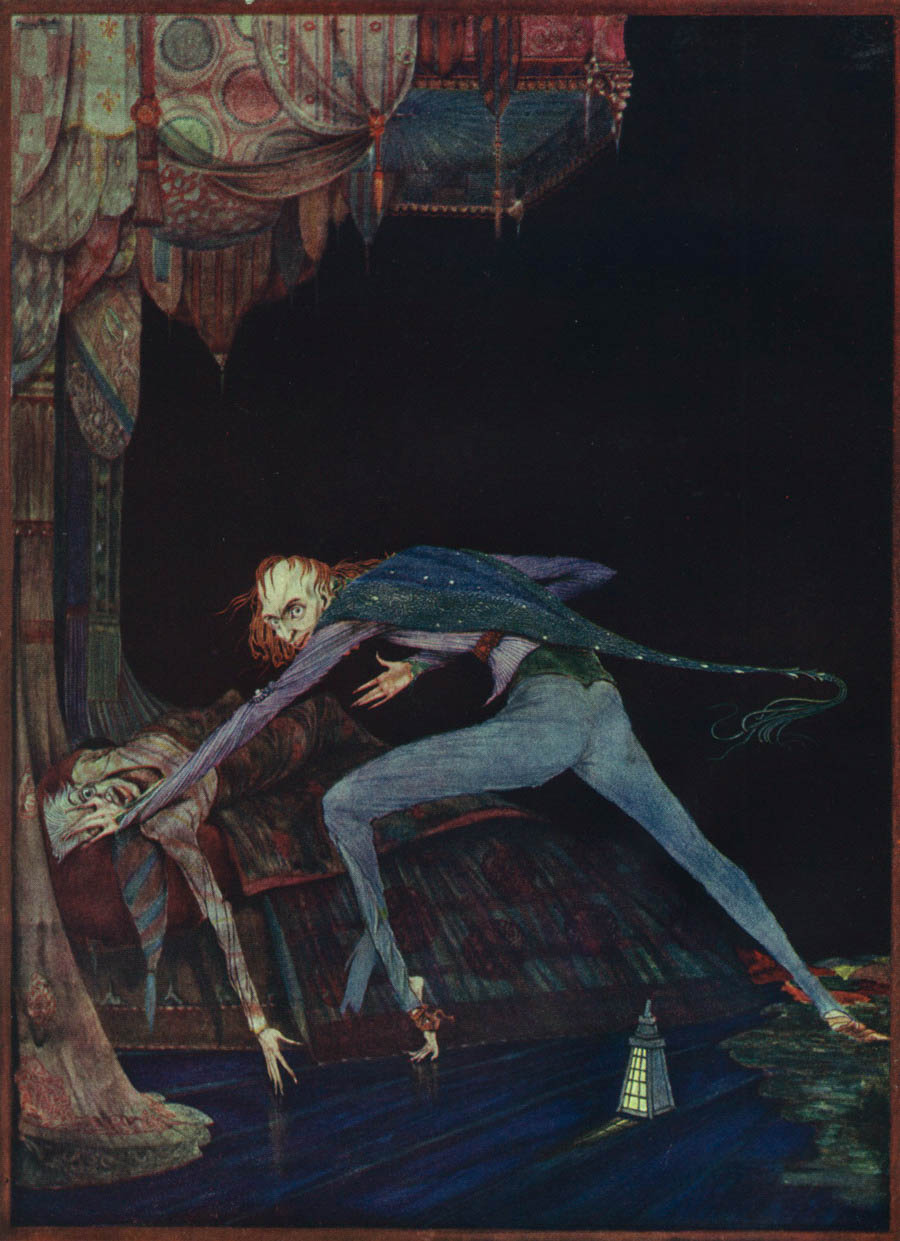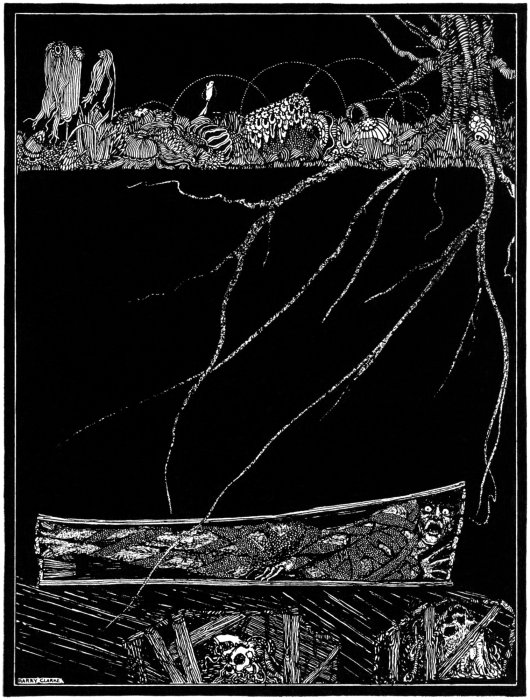|
Aphelia (rhetoric)
Aphelia (Greek, "plainness") is a plainness of writing or speech. Aphelia is used to explain or teach rather than to entertain or elicit an emotional response. Style The sentence structure is typically both short in length and lacks "poetic and rhetorical adornment." Parataxis and asyndeton are also expected within the plain style. Writing or speech using aphelia may display a "right-branching" sentence structure for the most part; that is, the sentence will begin with an independent clause that will be followed by at least one dependent clause.Zimmerman, Brett. ''Edgar Allan Poe: Rhetoric and Style''. Montreal: McGill-Queen's University Press, 2005. 138. Print Examples *"In plain prose, here are four whales as well known to the students of Cetacean History as Marius or Sylla to the classic scholar." — Herman Melville, Moby-Dick *"I knew what the old man felt, and pitied him, but chuckled at heart." — Edgar Allan Poe, The Tell-Tale Heart *"She presented all of the ordinary ap ... [...More Info...] [...Related Items...] OR: [Wikipedia] [Google] [Baidu] |
Parataxis
Parataxis (from el, παράταξις, "act of placing side by side"; from παρα, ''para'' "beside" + τάξις, ''táxis'' "arrangement") is a literary technique, in writing or speaking, that favors short, simple sentences, without conjunctions or with the use of coordinating, but not with subordinating conjunctions. It contrasts with syntaxis and hypotaxis. It is also used to describe a technique in poetry in which two images or fragments, usually starkly dissimilar images or fragments, are juxtaposed without a clear connection. Readers are then left to make their own connections implied by the paratactic syntax. Ezra Pound, in his adaptation of Chinese and Japanese poetry, made the stark juxtaposition of images an important part of English-language poetry. Etymology Edward Parmelee Morris wrote in 1901 that the term was introduced into linguistics by Friedrich Thiersch in his ''Greek Grammar'' (1831). The term has remained unchanged, but the concept of parataxis has e ... [...More Info...] [...Related Items...] OR: [Wikipedia] [Google] [Baidu] |
Asyndeton
Asyndeton (, ; from the el, ἀσύνδετον, "unconnected", sometimes called asyndetism) is a literary scheme in which one or several conjunctions are deliberately omitted from a series of related clauses. Examples include ''veni, vidi, vici'' and its English translation "I came, I saw, I conquered". Its use can have the effect of speeding up the rhythm of a passage and making a single idea more memorable. Asyndeton may be contrasted with syndeton ( syndetic coordination) and polysyndeton, which describe the use of one or multiple coordinating conjunctions, respectively. More generally, in grammar, an asyndetic coordination is a type of coordination in which no coordinating conjunction is present between the conjuncts. ''Quickly, resolutely, he strode into the bank.'' No coordinator is present here, but the conjoins are still coordinated. Examples Omission of conjunction "and" Aristotle wrote in his ''Rhetoric'' that this device was more effective in spoken oratory ... [...More Info...] [...Related Items...] OR: [Wikipedia] [Google] [Baidu] |
Independent Clause
An independent clause (or main clause) is a clause that can stand by itself as a ''simple sentence''. An independent clause contains a subject and a predicate and makes sense by itself. Independent clauses can be joined by using a semicolon or by using a comma followed by a coordinating conjunction (''and'', ''but'', ''for'', ''or'', ''nor'', ''so'', ''yet'', etc.). Examples In the following example sentences, independent clauses are underlined, and conjunctions are in bold. Single independent clauses: *I have enough money to buy an ice cream cone. *My favourite flavour is chocolate. *Let's go to the shop. Multiple independent clauses: *I have enough money to buy an ice cream cone; my favourite flavour is chocolate. *I have enough money to buy an ice cream cone, so let's go to the shop. See also *Comma splice *Conditional sentence * Dependent clause *Relative clause *Run-on sentence *Sentence clause structure In grammar, sentence and clause structure, commonly known as sen ... [...More Info...] [...Related Items...] OR: [Wikipedia] [Google] [Baidu] |
Dependent Clause
A subordinate clause, dependent clause, subclause, or embedded clause is a clause that is embedded within a complex sentence. For instance, in the English sentence "I know that Bette is a dolphin", the clause "that Bette is a dolphin" occurs as the complement of the verb "know" rather than as a freestanding sentence. Subtypes of dependent clauses include content clauses, relative clauses, and adverbial clauses. Content clause A content clause, also known as a "noun clause", provides content implied or commented upon by its main clause. It can be a subject, predicate nominative, direct object, appositive, indirect object, or object of the preposition. Some of the English words that introduce content clauses are ''that, who'' (and formal ''whom''), ''whoever'' (and formal ''whomever''), ''whether, why, what, how, when'', and ''where''. Notice that some of these words also introduce relative and adverbial clauses. A clause is a content clause if a pronoun (''he, she, it,'' or ''t ... [...More Info...] [...Related Items...] OR: [Wikipedia] [Google] [Baidu] |
Herman Melville
Herman Melville (Name change, born Melvill; August 1, 1819 – September 28, 1891) was an American people, American novelist, short story writer, and poet of the American Renaissance (literature), American Renaissance period. Among his best-known works are ''Moby-Dick'' (1851); ''Typee'' (1846), a romanticized account of his experiences in Polynesia; and ''Billy Budd, Billy Budd, Sailor'', a posthumously published novella. Although his reputation was not high at the time of his death, the 1919 centennial of his birth was the starting point of a #Melville revival and Melville studies, Melville revival, and ''Moby-Dick'' grew to be considered one of the great American novels. Melville was born in New York City, the third child of a prosperous merchant whose death in 1832 left the family in dire financial straits. He took to sea in 1839 as a common sailor on a merchant ship and then on the whaler ''Acushnet'', but he jumped ship in the Marquesas Islands. ''Typee'', his first b ... [...More Info...] [...Related Items...] OR: [Wikipedia] [Google] [Baidu] |
Moby-Dick
''Moby-Dick; or, The Whale'' is an 1851 novel by American writer Herman Melville. The book is the sailor Ishmael (Moby-Dick), Ishmael's narrative of the obsessive quest of Captain Ahab, Ahab, captain of the whaler, whaling ship ''Pequod (Moby-Dick), Pequod'', for revenge against Moby Dick (whale), Moby Dick, the giant white sperm whale that on the ship's previous voyage bit off Ahab's leg at the knee. A contribution to the literature of the American Renaissance (literature), American Renaissance, ''Moby-Dick'' was published to mixed reviews, was a commercial failure, and was out of print at the time of the author's death in 1891. Its reputation as a "Great American Novel" was established only in the 20th century, after the 1919 centennial of its author's birth. William Faulkner said he wished he had written the book himself, and D. H. Lawrence called it "one of the strangest and most wonderful books in the world" and "the greatest book of the sea ever written". Its opening sente ... [...More Info...] [...Related Items...] OR: [Wikipedia] [Google] [Baidu] |
Edgar Allan Poe
Edgar Allan Poe (; Edgar Poe; January 19, 1809 – October 7, 1849) was an American writer, poet, editor, and literary critic. Poe is best known for his poetry and short stories, particularly his tales of mystery and the macabre. He is widely regarded as a central figure of Romanticism in the United States, and of American literature. Poe was one of the country's earliest practitioners of the short story, and considered to be the inventor of the detective fiction genre, as well as a significant contributor to the emerging genre of science fiction. Poe is the first well-known American writer to earn a living through writing alone, resulting in a financially difficult life and career. Poe was born in Boston, the second child of actors David and Elizabeth "Eliza" Poe. His father abandoned the family in 1810, and when his mother died the following year, Poe was taken in by John and Frances Allan of Richmond, Virginia. They never formally adopted him, but he was with them well ... [...More Info...] [...Related Items...] OR: [Wikipedia] [Google] [Baidu] |
The Tell-Tale Heart
"The Tell-Tale Heart" is a short story by American writer Edgar Allan Poe, first published in 1843. It is related by an unnamed narrator who endeavors to convince the reader of the narrator's sanity while simultaneously describing a murder the narrator committed. The victim was an old man with a filmy pale blue "vulture-eye", as the narrator calls it. The narrator emphasizes the careful calculation of the murder, attempting the perfect crime, complete with dismembering the body in the bathtub and hiding it under the floorboards. Ultimately, the narrator's actions result in hearing a thumping sound, which the narrator interprets as the dead man's beating heart. The story was first published in James Russell Lowell's ''The Pioneer'' in January 1843. "The Tell-Tale Heart" is often considered a classic of the Gothic fiction genre and is one of Poe's best known short stories. The specific motivation for murder (aside from the narrator's hatred of the old man's eye), the relationship ... [...More Info...] [...Related Items...] OR: [Wikipedia] [Google] [Baidu] |
The Premature Burial
"The Premature Burial" is a horror short story by American writer Edgar Allan Poe, published in 1844 in ''The Philadelphia Dollar Newspaper''. Its main character expresses concern about being buried alive. This fear was common in this period and Poe was taking advantage of the public interest. The story has been adapted to a film. Plot In "The Premature Burial", the first-person unnamed narrator describes his struggle with things such as "attacks of the singular disorder which physicians have agreed to term catalepsy", a condition where he randomly falls into a death-like trance. This leads to his fear of being buried alive ("The true wretchedness", he says, is "to be buried while alive"). He emphasizes his fear by mentioning several people who have been buried alive. In the first case, the tragic accident was only discovered much later, when the victim's crypt was reopened. In others, victims revived and were able to draw attention to themselves in time to be freed from their ... [...More Info...] [...Related Items...] OR: [Wikipedia] [Google] [Baidu] |
Rhetoric
Rhetoric () is the art of persuasion, which along with grammar and logic (or dialectic), is one of the three ancient arts of discourse. Rhetoric aims to study the techniques writers or speakers utilize to inform, persuade, or motivate particular audiences in specific situations. Aristotle defines rhetoric as "the faculty of observing in any given case the available means of persuasion" and since mastery of the art was necessary for victory in a case at law, for passage of proposals in the assembly, or for fame as a speaker in civic ceremonies, he calls it "a combination of the science of logic and of the ethical branch of politics". Rhetoric typically provides heuristics for understanding, discovering, and developing arguments for particular situations, such as Aristotle's three persuasive audience appeals: logos, pathos, and ethos. The five canons of rhetoric or phases of developing a persuasive speech were first codified in classical Rome: invention, arrangement, style ... [...More Info...] [...Related Items...] OR: [Wikipedia] [Google] [Baidu] |





.jpg)